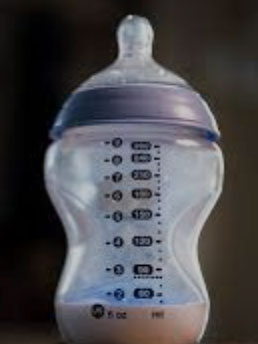By Amy Yurkanin
Families eligible for support through the state’s Women, Infants and Children (WIC) Program will have more flexibility about the types of formulas they can purchase as parents grapple with a nationwide shortage.
Parents who use the program may be able to buy different sizes and types of infant formula, including powder, ready-to-use or concentrate. The state has a contract with one formula company, Mead Johnson Nutrition. The company produces Enfamil, Nutramigen and Puramino, a formula for babies with severe allergies.
A press release from the Alabama Department of Public Health said state officials have been in regular communication with Mead Johnson Nutrition to monitor the supply available for families who use WIC. The program provides food assistance to low-income pregnant women and families with young children.
Public health officials have warned parents against making their own formula and have urged them to reach out to doctors and formula companies with questions about unfamiliar products. The shortage of formula has dragged on for weeks, caused by global supply chain disruptions and a recall of products produced at a plant in Michigan. Health officials in Tennessee and South Carolina said a half dozen children have been hospitalized because they lacked access to formula.
“Diluting formula, making your own formula, and using formula not regulated by the Food and Drug Administration can cause your baby to become sick,” said Dr. Karen Landers, chief medical officer for the Alabama Department of Public Health, in a news release. “Many families are able to safely feed their babies another formula when their usual formula is not in stock.”
The press release also urged mothers to breastfeed infants if possible.
“Human breast milk has specific immunity properties that are unavailable in infant formula, is easier for babies to digest than cow’s milk, and is protective against childhood illnesses, including asthma, ear and respiratory infections, and allergies,” said Pam Galloway, nutrition services director for Alabama’s WIC Program. “Breastfed infants also have lower lifetime risk for some health conditions, such as obesity and cardiovascular disease. Women who breastfeed for at least six months reduce their risk for Type II diabetes, breast cancer, and ovarian cancer. And the longer during her lifetime that a woman breastfeeds, the greater her protection is against these diseases.”











